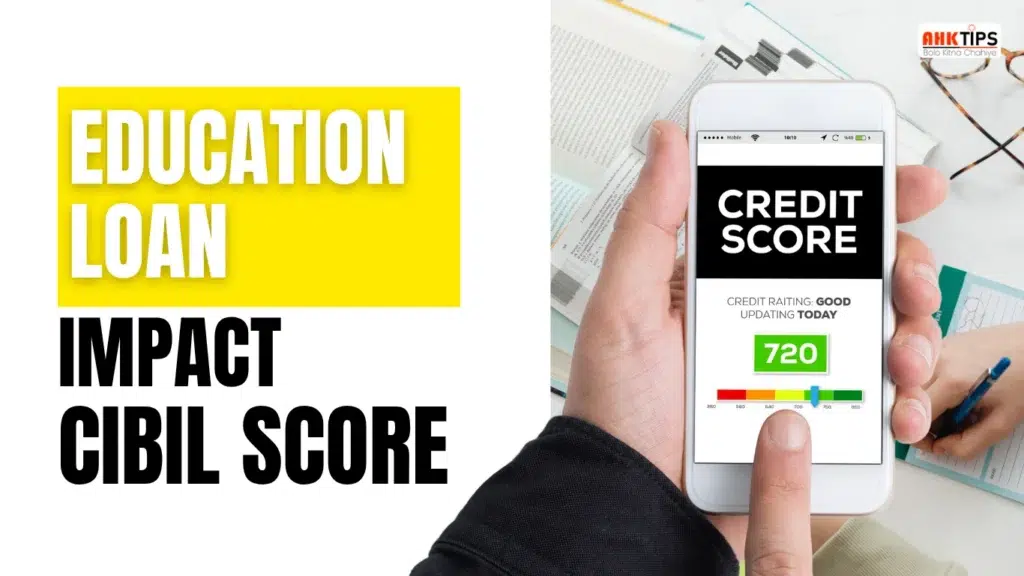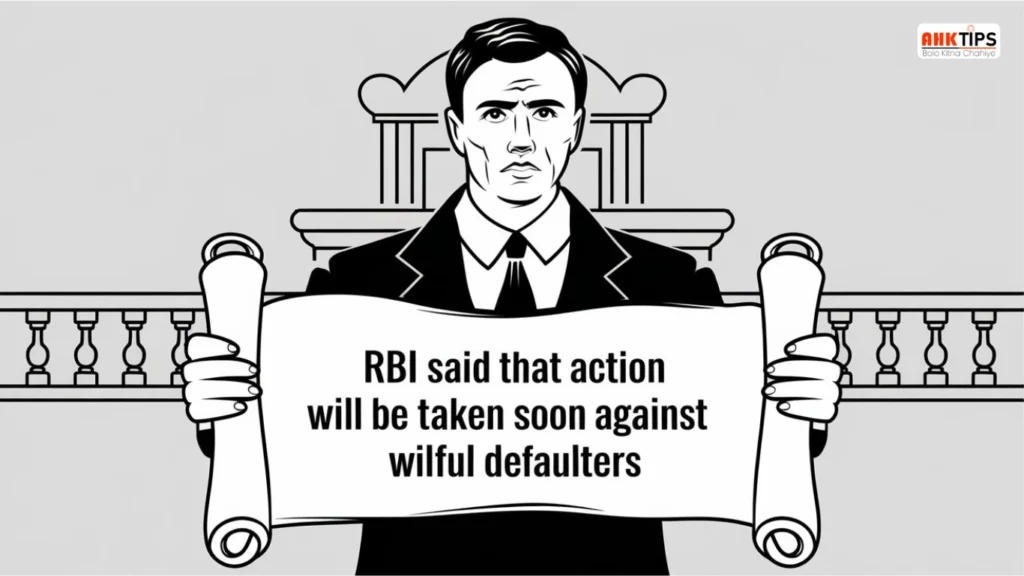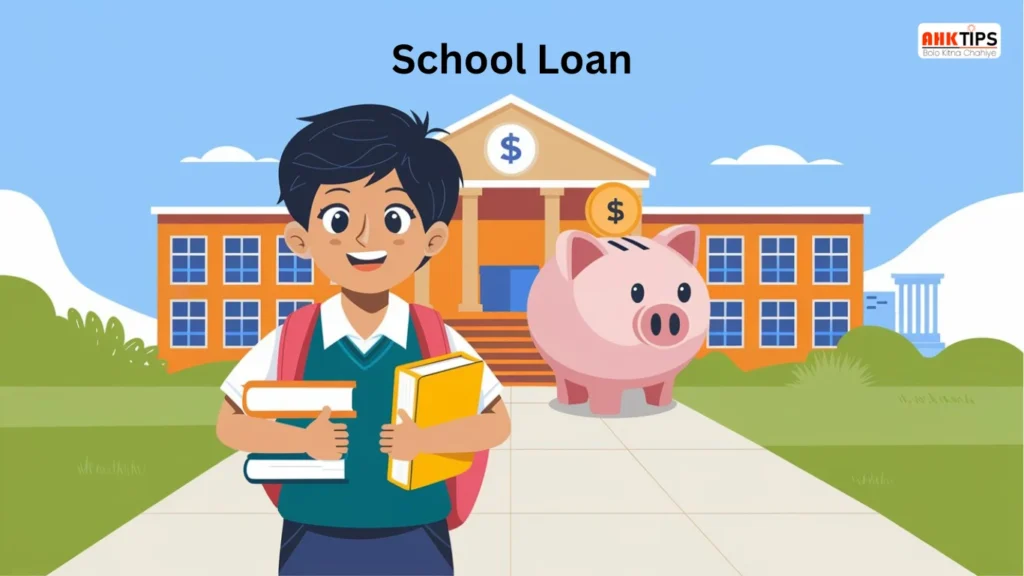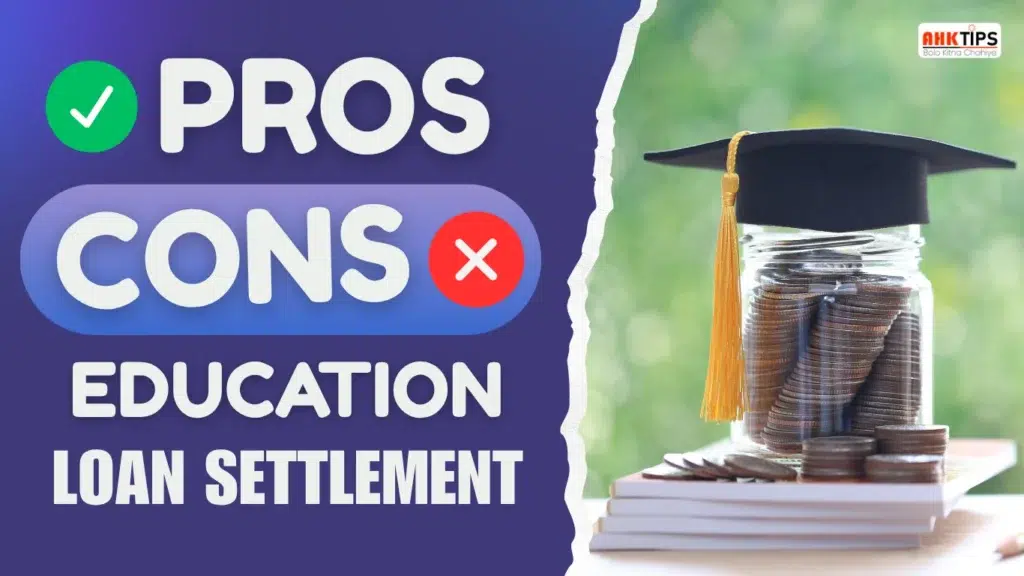Summary
Since Education loan settlement provides comfort for some time, eventually it will harm your credit. Your CIBIL record shows a “settled” status instead of a “closed” status; the lender absorbs a lower amount when you repay the loan. This stays on your record for years and lowers your credit score, making it difficult to apply for a credit card or loan later. In contrast, full payment raises your score and demonstrates financial responsibility. Before settling, borrowers should consider options, including restructuring. It is possible to rebuild your score with timely payments and responsible credit use, even if settlement is inevitable. The safety of your credit future depends on knowing the difference between “settled” and “closed” status.
Introduction
Sometimes, financial hardship makes it difficult to pay back educational loans. Under these conditions, Education loan settlement could be something borrowers consider as relief. You should first be aware, though, how this choice might affect your credit profile. The main concern is how settlement would affect your CIBIL score, which is basic for your financial situation. This post defines Education loan settlement, how it is reported to credit bureaus, and how it will affect your credit score in the long run. It also emphasises what actions you can take to get back from a “settled” situation and how complete payback stacks against settlement. Making the correct choice at the correct moment will help to either preserve or restore your creditworthiness going forward.
What Happens to Your CIBIL Score After Education Loan Settlement
Although it would provide some debt relief, paying off a college loan has long-term financial consequences. Main concerns of borrowers are related to how this decision can change their credit profile. Making good financial decisions requires awareness of changes in your CIBIL score after loan repayment.
What Is Loan Settlement?
Loan settlement arises when a borrower works with the lender to pay a reduced amount following non-payment of the total due amount. Usually paid once, this amount is used to close the account, and the lender agrees to this.
Unlike a normal loan closure, representing total payback, settlement indicates that the borrower might not have met the agreed loan terms.
How Is Settlement Reported to CIBIL?
When Education loan settlement results in a “settled” rather than “closed” or “paid” status, the lender alerts CIBIL, the credit bureau. This label indicates that, rather than fully returning the loan, the borrower made a partial payment the lender accepted.
For many years, this status has stayed in the CIBIL report and is rather crucial for upcoming lenders assessing the credibility of the borrower.
Immediate Impact on CIBIL Score
Usually, the CIBIL score after Education loan settlement drops after the status changes. CIBIL reduces the credit score to show more risk since the settlement suggests either financial stress or incapacity to pay back.
A lower score can make it more difficult to get housing loans, personal loans, new credit cards, or even business financing. Should they be approved, customers may also run into more difficult terms or higher loan rates.
Long-Term Implications
The “settled” designation on your CIBIL record stays for a lengthy period—usually seven years. Lenders reviewing your credit history over this period will discover that you broke a former loan agreement.
A settlement revealed on your report can delay approval or cause total refusal of upcoming applications, even if your financial situation improves.
Can the CIBIL Score Be Improved Later?
Your CIBIL score can be rebuilt over time, but this will rely on consistent, organised financial behaviour. Pupils might:
- Pay all upcoming EMIs on time.
- Control your credit usage.
- Maintain a reasonable mix of credit types.
Avoid defaults and late payment.s
Some borrowers try to make the “settled” status “closed” by later loan repayment of the waived amount. This depends, however, on the lender’s willingness to accept and record the CIBIL update.
Alternatives to Settlement That Protect Your Score
Before choosing a settlement, borrowers should look at other options, including loan restructuring, EMI deferral, or temporary interest waivers. Usually less negative for the credit score, these alternatives could provide ample relief without significantly changing the credit record.
Why Settlement Lowers Your Credit Score
Some debtors consider paying off their debt while juggling a difficult college loan repayment schedule. Although this could provide some temporary relief, it permanently marks your credit profile. Anyone considering this route must first understand why the settlement of student loans affects the CIBIL score.
What Happens During an Education Loan Settlement?
A loan settlement follows from a borrower’s unable to pay back their total outstanding obligation. The borrower works with the bank to settle some of the debt; the lender agrees to take this smaller sum as final payment. Usually, this comes only once the loan has grown past due.
Unlike the “closed” status used for totally paid debts, the lender changes the loan status in the borrower’s credit report to “settled.”
How CIBIL Interprets a Settlement
CIBIL and other credit bureaus compile information from banks and financial companies. CIBIL treats a loan reported as “settled” by a lender as negative. It indicates that the bank suffered losses, and the borrower might not have fulfilled the initial loan criteria.
A “settled” loan status implies a kind of partial default, which influences the borrower’s overall creditworthiness from the perspective of possible lenders.
Immediate Drop in Credit Score
One of the key reasons CIBIL score varies depending on the method the education loan is settled is risk-based assessment. CIBIL employs various criteria to assign scores, and repayment history is one of the most crucial. A settled debt shows non-compliance with payback terms, which immediately pulls down the score.
A single settlement can produce a considerable score reduction even in circumstances when the borrower has no more failures, hence making future credit access more difficult.
Long-Term Credit Profile Damage
For many years, the “settled” status stays on a credit record. This can lead to denials or heightened scrutiny for any new loan or credit card application. Lenders desire borrowers with a clean record of credit, so the presence of a settlement signals increased risk.
This long-term consequence is one of the key reasons why financial consultants suggest deferring settlement until absolutely required.
Impact on Loan Approval and Interest Rates
Even after the settlement is finalised, the borrower may suffer sanctions. Certain banks are willing to grant loans to those with a record of a settlement. Others may authorise loans but provide higher interest rates to cover the perceived risk.
This makes borrowing more expensive and difficult, even if the borrower’s income improves later.
Recovery from a Settled Status
Some borrowers attempt to correct the damage by clearing the waived debt later. If the lender agrees, they may alter the credit record from “settled” to “closed.” This, however, relies on the internal policy of the lender and their preparedness to notify CIBIL about the repair.
Borrowers must also continue to exhibit great credit conduct moving forward to rebuild confidence with lenders and progressively recover their credit score.
Difference Between ‘Closed’ and ‘Settled’ Status in CIBIL
Knowing the jargon used in your credit report is vital, particularly if you are trying to retain or recover your creditworthiness. Two terms borrowers sometimes mix are “closed” and “settled.” Knowing the main variation in CIBIL closed against settled loans will help you to keep better control over your credit score and reduce misunderstandings with lenders.
What Does ‘Closed’ Mean in a Credit Report?
A loan marked as “closed” on your CIBIL report shows that the borrower has faithfully paid back the complete outstanding amount per the loan arrangement. This reputation for financial discipline is encouraging for future lenders.
Features of a Closed Loan Status
- Complete principal and interest paid according to the scheme.
- Not one outstanding debt remains.
- Shows a borrower fulfilling all obligations.
- Helps to produce a quite decent CIBIL score.
Usually, a paid-off debt raises your creditworthiness and gains lender confidence.
What does “was settled” mean on a credit report?
Negotiations between a borrower with the bank to accept a partial payment and neglect to pay back the whole loan amount result in a “settled” status. The lender finishes the transaction at this level; hence, it is not seen as a complete payback.
Characteristics of a Settled Loan Status
- Acceptable partial payment after default or hardship
- The remaining balance was snatched by the lender
- Account listed as settled, not closed
- Negatively affects the borrower’s CIBIL score
This status defines the borrower as a greater credit risk since it indicates that they failed to fulfil the whole obligation.
How ‘Closed’ vs ‘Settled’ Impacts CIBIL Score
A “closed” debt generally increases the borrower’s CIBIL score. It shows financial responsibility and a neat payback record. Lenders see this as evidence of a dependable and low-risk borrower.
By contrast, a “settled” loan lowers the credit score. It stays on the credit record for several years and can make lenders cautious about granting fresh credit. In CIBIL, closed rather than resolved debt is crucial mainly because the latter indicates the borrower might default once more in the future.
Future Loans and Borrowing Approvals
Those with many “closed” debts sometimes find it simpler to obtain credit cards or future loans. These entries show that one can control and pay back credit over time.
Those with a “settled” status could run across denials, smaller credit limits, or higher interest rates. Lenders can still see past settlement records even if income increases later.
Knowing how your decisions right now impact your credit record will help you avoid long-term issues.
Can a ‘Settled’ Status Be Changed?
Under rare circumstances, debtors may ask the lender to mark the account as “closed” and refund the remaining waived amount following the settlement. This depends on the lending policies and is not guaranteed. Even granted, the new status might take some time to consider the CIBIL report.
Knowing closed from settled loans in CIBIL helps debtors choose better whether they are discussing debt or paying it back..
Can You Improve Your CIBIL Score After Settlement?
While paying off debt could offer some temporary relief from financial anxiety, over time, it will reduce your credit score. Once your CIBIL record indicates a “settled” classification, your creditworthiness decreases. Healing is still within grasp, yet. Knowing how to increase CIBIL score after loan payback will help you to rebuild financial credibility and gain back lender trust.
Understand the Impact of Settlement
Paying back a debt produces less than what was originally agreed upon. Lenders record this for credit bureaus; the debt is recorded as “settled,” not “closed.” Given this implies partial repayment, credit bureaus see this as a red warning.
A settled status lowers your CIBIL score and affects the chances of credit card or loan application acceptance. This information guides you to know the right steps to reverse the damage.
Check Your CIBIL Report Regularly
First, to know your current score and how the settlement appears, review your CIBIL report. More likely to still influence your score are blunders or errors you come across. Should there be any discrepancies, work with CIBIL to get them fixed.
Monthly analysis of your report assists you to stay current on how what you do influences the state of your credit.
Repay Any Remaining Dues, If Possible
If you have the means, consider paying down the waived loan amount at settlement. Some lenders let debtors pay off their loans later and agree to have the status changed from “settled” to “closed.”
This move shows a willingness to pay your obligations and stamps your credit history favourably, even though it may not completely reverse the prior damage.
Use Credit Responsibly Moving Forward
Once you have settled, focus on rebuilding your credit profile with careful handling of new credit. Apply for a secured credit card or a small personal loan and promise to make timely payments. Even a power bill payment history can help you steadily raise your score, if recorded.
Keep reasonable credit use and steer clear of taking too much debt at once. This speaks of financial constraint and steadiness.
Avoid Future Defaults and Late Payments
Making timely repayments is among the finest ways you can improve your score. Avoid any future defaults or missed EMIs, as they will highlight the negative impact of the earlier settlement.
Automated payments or reminders will help you to be consistent.
Maintain a Balanced Credit Mix
Try to maintain a mix of credit products ranging from personal loans to secured loans to credit cards. Having many credit lines and keeping them properly maintained over time will help to increase your credit score.
A well-balanced portfolio shows lenders you can control several kinds of loans without defaulting.
Should You Settle or Pay in Full for Better Credit Health?
Maintaining a good credit profile depends on controlling loan payments. When borrowers find financial difficulties, they sometimes question whether it would be better for their credit score to pay back a loan or settle one in whole. Knowing the variations in loan settlement from full payment influence on CIBIL will enable you to make a decision with knowledge.
What Does Full Payment Mean?
Full payment indicates clearing of your loan totally according to the original conditions and payback schedule. This includes paying all EMIs, interest, and relevant fees on time without asking the lender for discounts.
Positive Credit Impact of Full Repayment
- Exhibit accountability and financial restraint.
- Develops confidence among lenders.
- Raises or preserves a good CIBIL score.
- Produces “closed” credit report status.
Full payback shows that you can control and pay back debt, so enhancing your profile with the credit bureaus and institutions.
What Is Loan Settlement?
Loan settlement is the procedure whereby the borrower works with the bank to agree to a smaller final payment. The lender agrees to overlook the outstanding debt in return for a lump amount or partial refund. Many times, this is employed in a financial crisis.
How Settlement Affects Your Credit Report
- Not shown as “settled” on your CIBIL report
- Treated by credit bureaus as partial payback
- Sharply reduces your credit score.
- Concerns potential lenders have about this.
While a debt settlement offers temporary respite, it can cause long-term problems securing fresh credit approvals.
Comparing Education Loan Settlement vs Full Payment Impact on CIBIL
Your credit record may suffer depending on whether you settle or pay in whole. A settlement undermines credit strength; a full payment strengthens it.
Lender Perspective
Lenders like borrowers who pay back in whole since it reduces their default risk. Considered as higher-risk candidates, those having settled loans are subject to loan denials or high-interest rates.
Duration of Impact
On your credit record, a “settled” status remains for a few years. You might find problems getting credit cards, new loans, or even co-borrower approval during this time. On the other side, full payment gives your credit record long-term value.
When to Choose Settlement Over Full Payment
Although complete repayment is usually desired, settlement should be taken into account in cases of extreme financial difficulty rendering return unfeasible. This can call for other inevitable catastrophes, health crises, or job loss. In these situations, settling is preferable to defaulting totally.
Still, you should be mindful of how it will affect your credit score and work to gradually rebuild it.
Conclusion
Education Loan settlement also helps in times of crisis, even though it compromises long-term debt. The “settled” status lowers your CIBIL score, stays on your credit report for seven years, and increases the risk of not being eligible for the next loans. On the other hand, full repayment maintains good credit and gives lenders confidence. Although a crisis resolution could be the only one available, first consider several options and see what works. If you already have debt, pay close attention to modest credit use, CIBIL report monitoring, and steady payback to raise your score gradually. Good credit defines future financial possibilities; hence, careful choices now help to avoid problems later on.
FAQ’s
Ans: It implies the lender took a partial payment to settle the loan instead of the whole amount. Your credit score suffers as a result.
Ans: Usually showing on your record for up to seven years, it can affect credit applications going forward.
Ans: Indeed, but only if you pay back the waived amount and the lender approves updating your CIBIL record.
Ans: For future loan eligibility and credit score, paying in full is always better. Settlement should only be a last resort.












